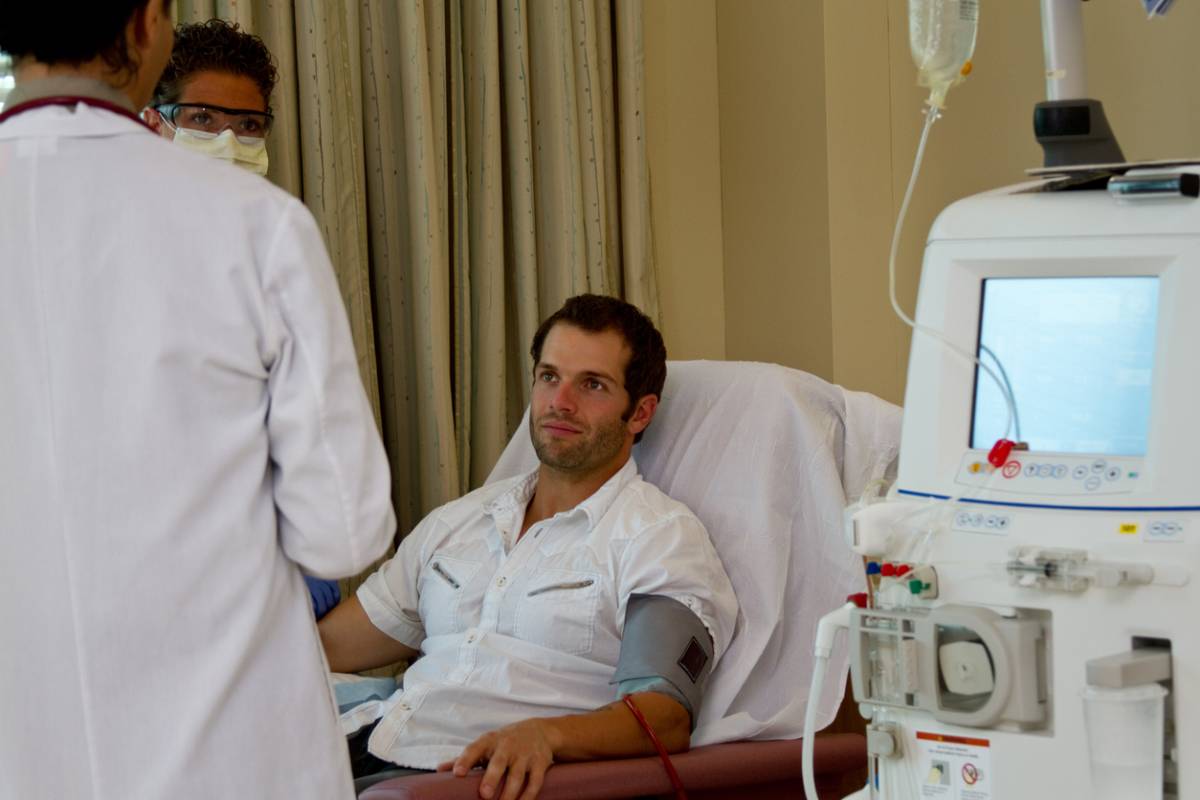If you or someone you care about is facing kidney dialysis, this question is probably weighing heavily on your mind. It’s completely natural to want to understand what lies ahead, and any kidney specialist will tell you that while the statistics provide a framework, every person’s situation is unique. The reality is that kidney dialysis has helped millions of people live longer, more fulfilling lives, though life expectancy depends on many individual factors.
Understanding the Numbers
The statistics around dialysis life expectancy can seem overwhelming at first. According to recent data, the average five-year survival rate for dialysis patients is approximately 35-40%. This means that about 4 out of 10 people on dialysis are still alive five years after starting treatment.
Age plays a significant role in these statistics. Younger patients typically have much better outcomes than older patients. For instance, someone in their 30s starting dialysis has a very different prognosis than someone in their 80s.
Age Makes a Substantial Difference
Younger patients on dialysis often have survival rates that are much more encouraging. People under 45 who start dialysis have a five-year survival rate of about 85%. This drops to around 60% for those between 45-64 and continues to decline with advancing age.
This doesn’t mean older patients can’t do well on dialysis—many do. But it does highlight why your kidney specialist will consider your age, along with other factors, when discussing your prognosis and treatment options.
Other Health Conditions Impact Outcomes
Your overall health status when starting dialysis significantly affects your life expectancy. Diabetes and heart disease are the two most common conditions that accompany kidney failure, and both can complicate your prognosis.
People with diabetes who require dialysis typically have shorter life expectancies than those without diabetes. Similarly, existing heart problems can make dialysis more challenging and affect long-term outcomes. However, proper management of these conditions can improve your prognosis substantially.
Type of Dialysis Treatment Matters
There are two main types of dialysis: hemodialysis and peritoneal dialysis. Hemodialysis is typically performed at a dialysis center three times per week, while peritoneal dialysis can often be done at home daily.
Some studies suggest that peritoneal dialysis may offer survival advantages, particularly in the first few years of treatment. However, the best type of kidney dialysis for you depends on your specific medical situation, lifestyle, and personal preferences.
Quality of Life Considerations
While survival statistics are important, quality of life is equally significant. Many people on dialysis continue to work, travel, and maintain active social lives. The key is finding the right balance between treatment and living your life.
The Importance of Compliance
One of the biggest factors affecting life expectancy on dialysis is how well you follow your treatment plan. This includes showing up for all scheduled dialysis sessions, taking prescribed medications, and following dietary restrictions.
Skipping dialysis sessions or not following your fluid restrictions can lead to serious complications and a shorter life expectancy. Your kidney specialist and dialysis team will work with you to make compliance as manageable as possible.
Transplant as a Game Changer
For many people, a kidney transplant represents the best long-term option. The life expectancy for someone with a successful kidney transplant is significantly better than staying on dialysis long-term.
However, not everyone is a candidate for transplant, and the waiting list for donor kidneys can be long. Your kidney specialist will evaluate whether you’re a good transplant candidate and help you navigate the process if appropriate.
Lifestyle Factors That Help
Several lifestyle factors can improve your outcomes on dialysis. Maintaining good nutrition, staying as active as possible, managing stress, and keeping up with preventive medical care all contribute to better health and longer life expectancy.
Regular exercise, performed within the limits set by your healthcare team, can improve your energy levels and overall health. Mental health support is also crucial, as depression and anxiety are common among dialysis patients and can affect treatment outcomes.
The Role of Your Healthcare Team
Your kidney specialist and dialysis team play crucial roles in your long-term success. Regular monitoring, adjusting treatment as needed, and addressing complications early all contribute to better outcomes.
Do not hesitate to ask questions about your treatment or express concerns about how you’re feeling. Open communication with your healthcare team is essential for optimizing your care.
What To Expect
While facing kidney dialysis can feel overwhelming, remember that treatment continues to improve. New technologies, better understanding of patient needs, and improved medications are constantly enhancing outcomes for dialysis patients.
If you have questions about kidney dialysis, schedule a consultation with our kidney doctor today.

